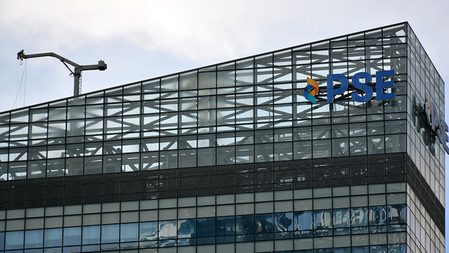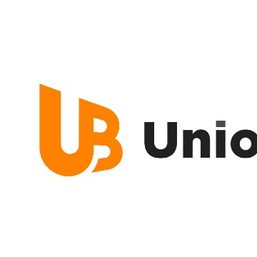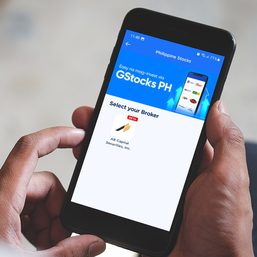SUMMARY
This is AI generated summarization, which may have errors. For context, always refer to the full article.
![[ANALYSIS] Listing status of Metro Pacific and Aboitiz Power as we enter October](https://www.rappler.com/tachyon/2023/09/tl-october-stock-speculation.jpg)
News reports last week captured the buzz over the exit of Metro Pacific Investments Corporation and Aboitiz Power Corporation (respectively traded under the stock symbols of MPI and AP) from the Philippine Stock Exchange’s composite index, previously known as the Phisix, and currently as the PSEi.
The PSEi is the country’s main stock market index consisting of the 30 most liquid and well-capitalized listed firms. It is also one of the country’s only two market indicators regarded to mirror the general state of the Philippine business climate, at the same time, an acceptable barometer of the general state of the local economy.
The other market indicator is the “All Shares” index. It is considered a complementary index to the PSEi because it includes in its computation all the traded stocks in the stock exchange.
The stock exchange regularly examines and revises the list of the stocks in the PSEi at least twice a year. These are done on mid-February and mid-August of the year, each using a market data covering a one-year period.
In particular, the data used as basis for the mid-February recomposition covers the period from January to December of the immediately preceding year. On the other hand, the market records from July of the immediately preceding year up to June of the current year become the basis for the mid-August recomposition.
The result of the semi-annual review becomes not only the basis of the re-composition of the PSEi but also of its sector indices divided under financials, industrial, holding firms, services, and mining and oil.
The outcome of the review and changes in the composition of the indices is announced at least five trading days prior to their implementation, by way of press releases and the publication of a memorandum to the effect in the PSE website.
Minimum requirements
To be included in the PSEi list, PSE has some minimum requirements for the composite firms to maintain. Most critical in these requirements are for companies to have a minimum free float level of 20% and ability to meet the liquidity and capitalization criteria set by the stock exchange.
Free float refers to the shares of a listed company that are “not restricted” and, thus, are available to the public for trading.
To digress, the shares “held by company insiders, directors, vested employees, or affiliated trusts and foundations” are considered restricted shares.
The minimum free float level requirement was set at 10%, at first. This was raised and pegged for a long time to 12%. This was again raised to 15% before 2018 (if I’m not mistaken), and further increased to 20%, starting with the December 2022 index review.
MPI: Voluntary delisting
Delisting can be voluntary or involuntary.
In the case of MPI, its delisting is voluntary. This decision effectively makes the company to be totally out of the PSE roll of listed companies, much more so, as one in the coveted list of the PSEi.
The decision to go private was driven by the desire of management to “be undistracted by the need to focus on short-term – often quarterly – goals that public ownership often imposes,” as averred by management. And this was effectively consummated after the successful tender offer by the company’s four major stockholders conducted last August 9, 2023 up to September 19, 2023.
There were four major stockholders involved in the tender offer. These were: Metro Pacific Holdings, Inc. (“MPHI”), GT Capital Holdings, Inc. (“GT Capital”), and Mit-Pacific Infrastructure Holdings Corporation (“Mit-Pacific,” a joint venture between the Japanese trading house Mitsui & Co. and Japan’s government-private sponsored infrastructure investment fund JOIN) and MIG Holdings Incorporated.
To recall, the tender offer price was at Php5.20 per share. This mopped up 19.04% of the company’s free float, that amounted to a total of Php28.4 billion (US$501 million). This consequently drove up the aggregate number of non-public shares to 97.22%, which was way above the PSE rule of 95 percent for voluntary delisting of outstanding shares.
Needless to say, public float dropped down to 2.78%.
Because of this development, MPI will be replaced in the PSEi roster effective at the end of the trading day of September 26 (as clarified later on), based on the memorandum of PSE president and CEO Ramon S. Monzon on the subject.
Settlement of the tender offer will be on September 28 (following the new T+2 settlement cycle policy). Subsequently, MPI will be delisted by mid-October.
By then, the rest of the retail investors who are still holding to the stock will no longer be able to sell through the market with its lower sales transaction tax. Instead, they will go through an ordinary private sale, subject to a higher sales transaction tax.
AP: Removed from roster
As for AP, the company will continue to be a publicly listed firm. However, it will lose – as it will be replaced – its standing in the roster of composite companies in the PSEi. This will immediately take effect (unlike that of MPI)) on September 26, per the same memorandum of Monzon.
AP has an ongoing share buyback program for the purpose of generating additional shareholder value. Under regular market conditions, buyback programs have a positive impact on the company’s share price.
The following example may show you how it works as a financial devise to enhance shareholder value: A listed company has 2,000 shares of which one stockholder owns 200 or 10% interest. The company buy back 400 shares. As a result, the company’s total number of shares is reduced to 1,600. This move, in turn, effectively raises the said stockholder’s stake to 12.50%. As such, the same stockholder will be entitled to a greater share of the profits. This will eventually translate into higher share prices, for higher profits command higher market prices.
Unfortunately for AP, the program has led the company to lose its standings in the PSEi list by having unwittingly breached the minimum free float requirement of 20% down to – believe it or not – 19.98%.
What is more heartbreaking was the way it happened. A company insider was said to have bought shares simultaneously without realizing the impact of said action on the buyback status of the company.
By the way, we are entering one of the most critical months of the trading year – the month of October.
In this connection, this famous lines from Mark Twain may humor at the same time teach you something: “OCTOBER: This is one of the peculiarly dangerous months to speculate in stocks. The others are July, January, September, April, November, May, March, June, December, August, and February. There are two times in a man’s life when he should not speculate: when he can’t afford it and when he can.”
The drift of contrarians, on the other hand, is to “be fearful when others are greedy, and be greedy when others are fearful.” – Rappler.com
The article has been prepared for general circulation for the reading public and must not be construed as an offer, or solicitation of an offer to buy or sell any securities or financial instruments whether referred to herein or otherwise. Moreover, the public should be aware that the writer or any investing parties mentioned in the column may have a conflict of interest that could affect the objectivity of their reported or mentioned investment activity. You may reach the writer at densomera@yahoo.com.
Add a comment
How does this make you feel?


![[ANALYSIS] Aboitiz Power Corporation beats expectations](https://www.rappler.com/tachyon/2023/11/ABOITIZ-beats-expectations-copy.jpg?resize=257%2C257&crop_strategy=attention)
![[VANTAGE POINT] Opposition to port system project mounts: Will Marcos take heed?](https://www.rappler.com/tachyon/2023/07/TL-tempest-port-redux-July-19-2023.jpg?resize=257%2C257&crop_strategy=attention)

![[ANALYSIS] Time to take the contrarian side](https://www.rappler.com/tachyon/2024/07/thought-leaders-time-to-take-the-contrarian-side-072520224.jpg?resize=257%2C257&crop=452px%2C0px%2C1080px%2C1080px)
![[ANALYSIS] Every inch of the market’s climb is a battle now but may soon prove better](https://www.rappler.com/tachyon/2024/07/thought-leaders-market-climb-battle.jpg?resize=257%2C257&crop=324px%2C0px%2C720px%2C720px)
![[ANALYSIS] The West Philippine Sea dispute and the stock market’s performance](https://www.rappler.com/tachyon/2024/06/thought-leaders-west-ph-sea-dispute-and-market-performance.jpg?resize=257%2C257&crop=134px%2C0px%2C720px%2C720px)


There are no comments yet. Add your comment to start the conversation.